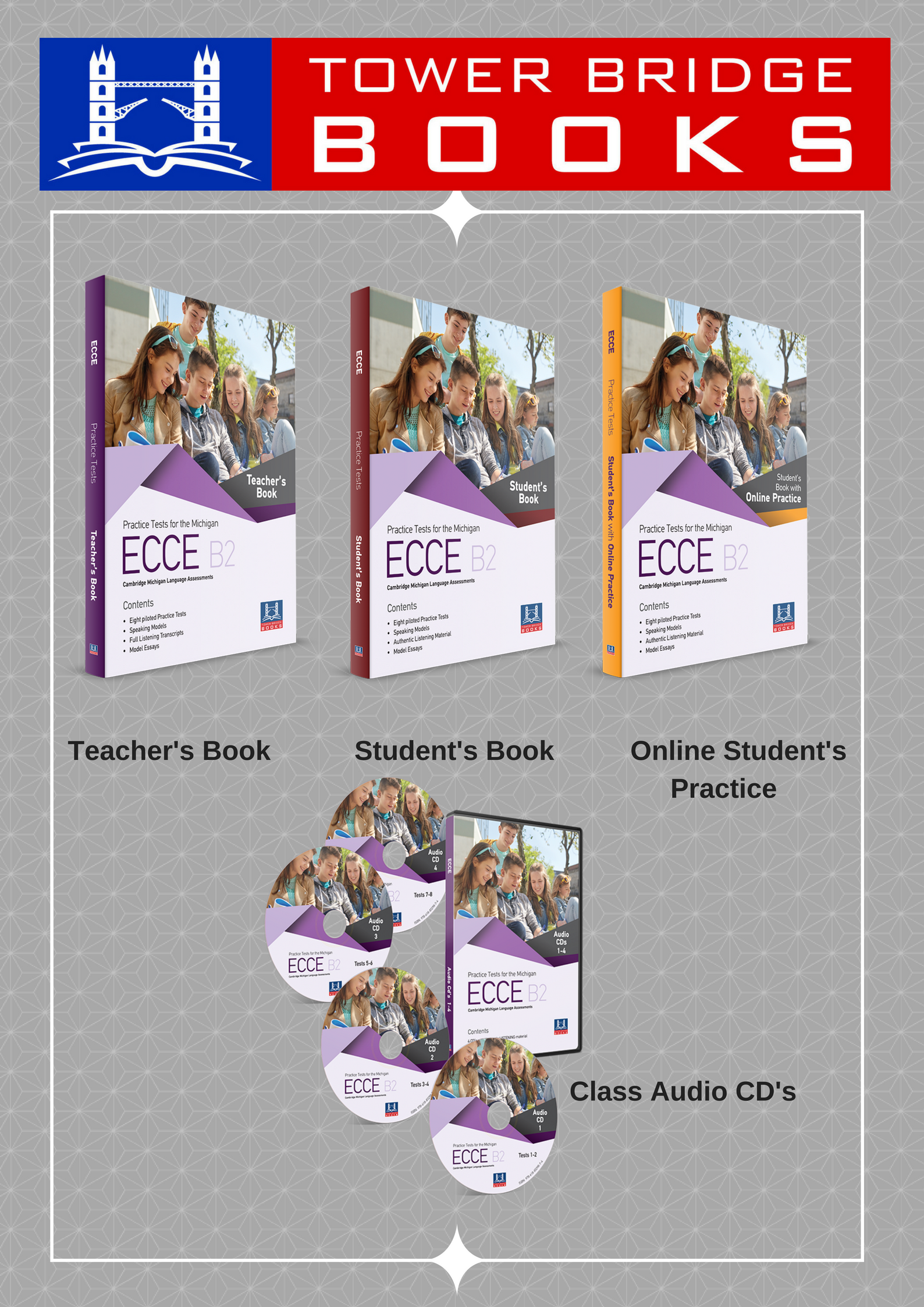Tips on ECCE Listening
This article is one of a series of articles on features of Tower Bridge Books, specifically on preparation for the ECCE.
In order for students to excel in the Listening section of ECCE, exposure to vocabulary as well as a wide range of American accents is of utmost importance. Teachers can show them videos from the internet, inviting them to follow the general discussion on various topics, and jot down specific words or expressions, which they will use when talking about what they heard. This way, both speaking and listening skills are honed.
An interesting activity would be to expose students to short monologues or dialogues of American speakers via the internet, and have them play a guessing game, so as to place their accent (North or South America, and so on).
Another way to help students improve their listening skills is by having them record voice journals, using free websites. More specifically, teachers can prompt speaking by asking questions like “How would you teach English if you were a teacher for a single day?” or “Describe your best/worst holiday.” Then, students are assigned to listen to and comment on their classmates.
Assigning students homework that involves watching the news is beneficial in more ways than one. Not only does it give them another medium of listening to English, but it also gives them something to talk about with other speakers. This will help students engage in the culture, which is so vital to the English language learning process.

An activity for students to master both listening and writing skills—as these two are inextricably related—is by asking them to listen to some lectures or speeches online, and then write a summary. Thus, they are encouraged to focus on key words/ideas, which they present in a coherent short text.
In order to acquaint students with specific sounds and nuances, and enable them to distinguish or identify particular vowel sounds/clusters, teachers can have them read out loud minimal pairs, such as peach/pitch, lick/leek, and so on.
This is the rationale behind our book. The level of the vocabulary and expressions found throughout the eight tests is slightly higher than that expected in the exam, with a wide variety of topics covered in both Listening parts of the exam. Students are exposed to all sorts of formal and informal communicative situations in order to tackle the Listening section with confidence.
Last but not least, just like all of our books, ECCE has an online version, which helps every student practise their Listening skills at home by saving time in the classroom. Students can do each Listening test as many times as they wish, in order to practise their listening skills, and excel in the exam. The teacher has access to his or her students’ scores, and can follow their progress. Most importantly, this saves time in the classroom, where the teacher can focus on the weaknesses of each student, thus fostering individualised learning, and converting the classroom into a workshop. The online practice provides, not only answers, but also annotations for the correct answers, so that the student knows why A is right, and D is wrong. It’s the perfect way to practise Listening skills..
Success…it’s all about making a difference!







